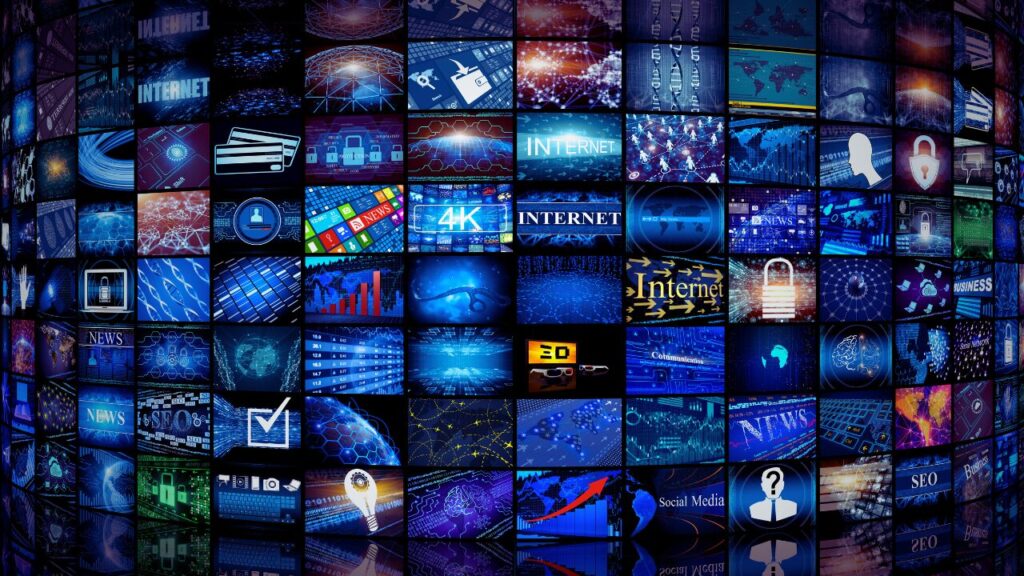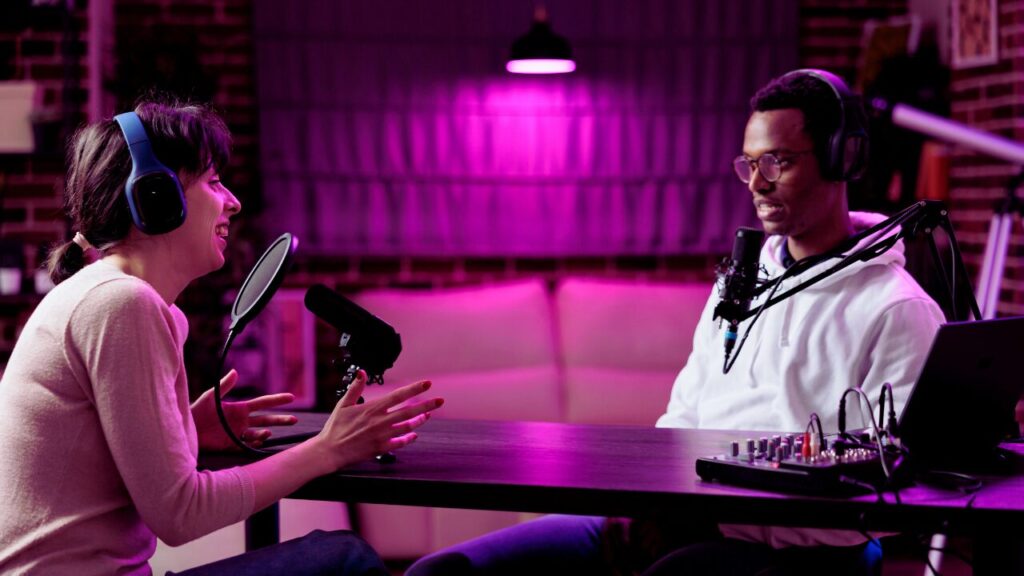
Once upon a time, earned media meant one thing: getting a story in the newspaper or being interviewed on the nightly news. That was the goalpost for visibility and credibility.
And it still matters.
But here’s the kicker: Earned media today is so much more, and it’s never been more powerful for building trust, influence, and reputation for business and personal brands.
We’re not consuming media like we used to. We’re not all sitting around watching the 6pm news bulletin or flipping through glossy magazines.
These days, we scroll. We binge podcasts. We subscribe to Substacks. We check out Instagram Reels or TikTok videos. We dip in and out of YouTube, LinkedIn, Reddit, and Twitter/X. Our habits have changed as the media ecosystem has evolved.
So if you’re a founder, a solo business owner, an expert advisor, or a thought leader building your professional brand, take note. Earned media is evolving, and if you understand how to leverage its power, it can do a lot of heavy lifting for you.
The new shape of earned media
Let’s start with the basics. Earned media is any kind of exposure you don’t pay for and don’t publish yourself – it’s conferred upon you by someone else.
FOR EXAMPLE: A journalist quoting you in a story. A podcast host inviting you on as a guest. A customer raving about your service on LinkedIn. A peer citing your insights in their newsletter. A speaker featuring a quote from you in their keynote presentation.
It’s independent, and often carries perceived third-party validation and endorsement. And it’s certainly more credible and believable than any ad campaign you can come up with!
Bottom line: It can’t be bought, it needs to be earned. This is the hallmark of public relations, and while there’s a whole lot more to PR today than just earned media, it represents the roots of the discipline.
Indeed, when I first started working as a PR consultant some three decades ago, generating media publicity formed a large part of what I did day-to-day (we didn’t call it earned media then). Of course, the world’s changed a lot since then but the concept of earned media continues to matter when it comes to building brand visibility and authority.
But here’s where it gets interesting.
Earned media today includes not only mainstream press but also things such as:
- podcast guest appearances
- influencer shout-outs
- user-generated content
- unsolicited testimonials
- reposts and recommendations across social platforms
- mentions in Reddit threads or Quora answers
- citations in niche industry blogs
- opinion pieces in trade publications
- quotes in Substack newsletters
- organic shares of your content across communities you didn’t seed yourself
It’s all earned, and it’s all-powerful, because people trust third parties more than they trust your marketing.

The AI Factor: What’s changed?
Okay, so we’ve got the multitude of media channels – major outlets, well-established niche publications, owned media such as blogs and podcasts, YouTube, and the raft of social media platforms.
If the seismic shifts that have occurred in the media over the past 20 years or so wasn’t enough, we now have to layer in generative AI.
Tools like ChatGPT, Google’s Gemini, and Perplexity are changing how people find and validate information. These tools don’t just search the internet – they synthesise it. What they surface is often based on trusted mentions and citations from articles, interviews, transcripts, and forums. While models like Claude don’t currently browse the web, they still draw on a wide range of high-quality public data to generate context-rich responses.
In other words: your earned media – those mentions, quotes, interviews, and citations – are not just reaching people, they’re training the machines that influence the people.
If someone asks ChatGPT, “Who’s an expert on sustainable architecture?” or “Best podcast guests on digital leadership?” — the LLM (Large Language Model – e.g. ChatGPT, Perplexity) is drawing on previously published material. If you’ve been mentioned in enough credible places, there’s a chance you might show up in the answer.
This isn’t SEO – it’s GEO
We’re entering a new era called Generative Engine Optimisation (GEO).
GEO is the emerging practice of optimising your content, media presence, and brand signals so that you’re included, cited, or surfaced in responses generated by generative AI search tools like ChatGPT (with browsing), Perplexity, and Google’s Gemini.

If SEO is about getting found on Google, GEO is about getting mentioned by AI. It’s about supplying the type of structured, context-rich content that AI tools are designed to detect, understand, and include.
Let’s say you were interviewed on a podcast last year. That interview gets transcribed and quoted in a Substack newsletter, and linked on a community forum. That layered visibility increases the chances your name shows up in AI-generated answers about your area of expertise. You get surfaced, not because of an ad, but because of your authority footprint.
This is where reputation meets reach. And it’s happening now.
Generative AI search is changing how people discover experts and brands – instead of showing links, it delivers full answers based on trusted sources. This shift makes earned media even more valuable.
Real-world examples of earned AI visibility
Still wrapping your head around it? Here are a few everyday scenarios:
- You’re featured in a trade article about leadership trends. That piece gets scraped into the training data of a generative model. Months later, your quote turns up in an AI-generated summary.
- A client tags you in a Reddit thread saying you helped them solve a problem. Reddit is heavily crawled by LLMs. You just earned an AI trust signal.
- You write a guest blog post on a respected industry site. That content becomes part of the model’s memory when people search for expert recommendations.
- You give a talk at a virtual summit. The event organiser publishes a recap with key speaker takeaways, including yours, which gets shared in multiple industry Slack groups and ends up quoted in a blog post. That digital trail boosts your discoverability in AI-generated summaries.
The generative AI voices to follow
There’s a lot of noise around AI and PR right now, and I am by no means an expert in the space. But I note a few voices are starting to cut through with sharp, strategic, and practical insights. These people ‘get it’, and are well worth following …
🔹 Sarah Evans
Sarah is a leading public relations strategist and partner at Zen Media, known for advancing the integration of generative AI in PR practices. Through her Substack “PR@ctical,” she shares executive-level insights on how AI and search transform brand visibility. If you’re interested in this topic, Sarah’s Substack is essential reading: https://prsarahevans.substack.com/ REQUIRED READING: “The new media glossary for generative PR” and “The new media tiers (and why tier 1 just got demoted)”
🔹 Andrew Bruce Smith
Based in the UK, Andrew is the chair of the CIPR’s AI in PR panel and a brilliant guide on embedding AI across comms workflows, from media monitoring to ethical usage. He’s well worth following on LinkedIn: https://www.linkedin.com/in/andrewbrucesmith/ REQUIRED READING: This LinkedIn post summarising one of the speakers of an AI in PR Masterclass (excellent stats & info tidbits)
🔹 Christopher S. Penn
Christopher is a bit techy, but his frameworks are gold. If you want to learn how to generate prompts, structure data, and think like a machine without losing your humanity, he’s worth a follow: https://www.christopherspenn.com
REQUIRED READING: “Generative AI Use Cases in PR”
And here are a couple of articles that have caught my eye that you might find interesting.
FURTHER READING:
- Why Is AI Essential for PR Pros in 2025? – by Barbara Rozgonyi
- How media and PR impact AI for your brand – by Lana Mini
Final thought
You don’t need to ‘game’ AI (although no doubt there are many short-cut merchants out there trying to!). You don’t need to chase virality.
You just need to focus on building meaningful visibility, the kind that’s earned, not bought. That’s how you build real authority and make yourself not just seen, but remembered, by people and by machines.
If your media mentions have been gathering dust, it’s time to dust them off and re-strategise.
The new earned media isn’t just about reach. It’s about reputation, relevance, and long-tail recognition in a world run by algorithms and fuelled by trust.
We’re just sauntering to the starting line – the race has only just begun, and it’s going to be a marathon, not a sprint!
Onwards!
~ Trevor



Leave a Reply